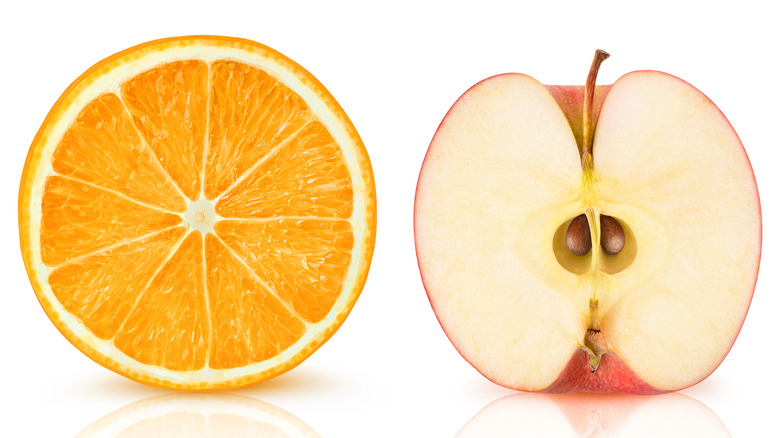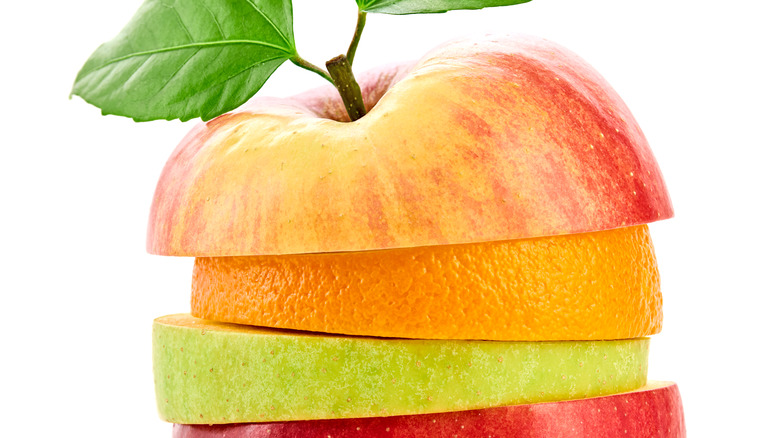
If you’re aiming to develop a healthy diet, incorporating fruit is essential. Besides satisfying your sweet cravings without turning to unhealthy snacks, fruits provide numerous vitamins, minerals, and antioxidants that support health in various ways (via Advances in Nutrition). The Harvard T.H. Chan School of Public Health states that consuming enough fruit can lower your risk of hypertension and heart disease, aid in weight loss, and enhance gastrointestinal and eye health.
Sadly, only about 12% of American adults consume enough fruit, according to the Centers for Disease Control and Prevention (CDC). Among the fruits we do consume, the United States Department of Agriculture (USDA) identifies apples and oranges as favorites. While many claim you can’t compare apples and oranges, this isn’t entirely accurate. Let’s examine how America’s favorite fruits stack up in terms of nutritional value.
Apples and oranges offer different health benefits

We’ve all heard the saying “an apple a day keeps the doctor away,” but could this phrase apply equally or even better to oranges? According to LiveStrong, oranges are richer in vitamin C, vitamin A, folic acid, and calcium. Given this nutritional profile, it’s unsurprising that oranges and other citrus fruits rank among the most beneficial for reducing the risk of death and chronic diseases, as noted by the Harvard T. H. Chan School of Public Health.
However, Harvard cautions against relying on a single type of fruit, as variety and quantity are crucial. No single fruit can fulfill all your health needs. Apples provide more fiber, vitamin K, manganese, and quercetin (via Prevention), and according to Harvard, might be more advantageous for weight loss and preventing type 2 diabetes.
So, which fruit is healthier? The answer depends on your personal priorities. What is certain is that both fruits offer unique health benefits — and incorporating both into your diet is more beneficial than choosing one or none.
“`




